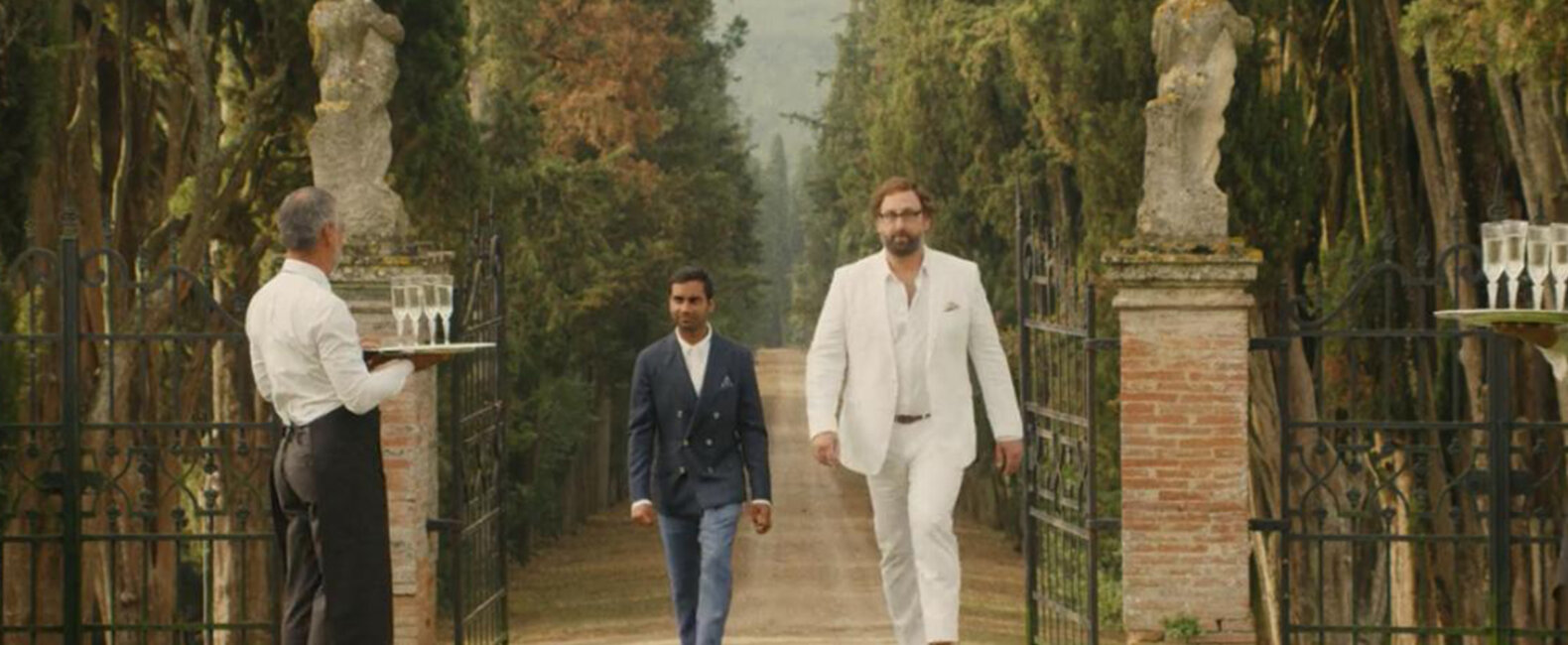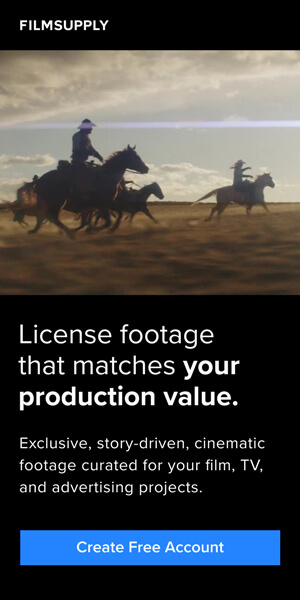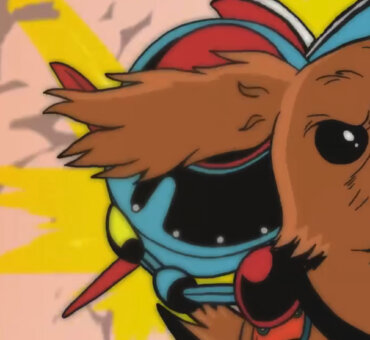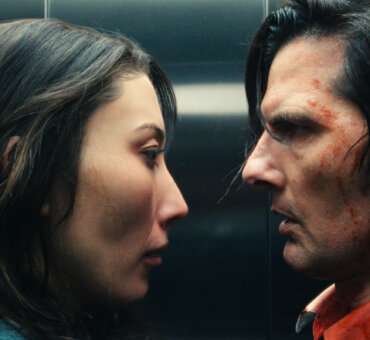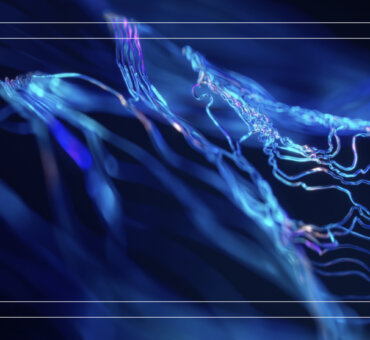Jennifer Lilly’s career path has been what you might call “traditional.” After starting as a PA on the big box office Hollywood film The Siege, Jennifer apprenticed in the cutting room of Sweet and Lowdown before she landed a small editing job on Scorsese’s Gangs of New York. “I was raised old school,” she told us. “I was mentored.” Funny enough, it was Jennifer’s traditional path that led to her editing the very nontraditional TV series Master of None.
“They were attracted to my film experience and the work I did with feature filmmakers,” she said. “This show is not a sitcom. They wanted a cinematic style, and I think that made me an attractive candidate.”
We recently talked to Jennifer Lilly about her career, her approach to editing, and her work on Master of None.
The start of your career exposed you to some pretty impressive projects and filmmakers. What does mentorship on high-profile projects look like?
There’s not a specific process. Mostly, I got to be in the room watching these incredible editors and auteurs at work. I just absorbed it. You know, there’s the creative work of cutting together material; and then there’s a whole universe of workflow, technical demands, and etiquette. On the creative side, I was lucky enough to be around these editors and directors as they worked together. This allowed me to see how they find performance or establish pacing and storytelling, how they work together.
What was your biggest takeaway watching these veteran editors and filmmakers work?
When you learn from people who’ve made 40 or more movies, the biggest thing that strikes you is how much trust they have in the process. It’s not uncommon to work with filmmakers and experience a bit of mania. “Oh my God, it’s not working! How are we gonna fix it?!” But when you watch people who’ve done it so much that they’re like, “Okay, let’s let that sit there for a minute. Let’s try screening that and see what happens,” you realize that panic is rarely necessary. Editing is about finding the answer, “Okay, how can I fix that? How can I make that work better?” You always want to make the best movie or show you can. But sometimes you have to experiment, make a choice, and go for it. When you work with veteran editors and directors, they sometimes don’t even verbalize things. They just keep going until they find what works best.
Let’s talk about your work on Master of None. When did you get brought on and what were those first conversations like?
They were still writing all the episodes. They were working in the writers’ room in L.A., and I was in New York. So I had a Skype interview with Alan [Yang] and Aziz [Ansari]. It was pretty casual. “What kind of comedy do you like?” type questions. They were trying to get a feel for who I was and whether I’d be a good personal fit. Obviously, that’s not the whole thing, but you do spend quite a bit of time together in a dark room working away. I’ve never asked them why they gave me a shot, but I’m very happy they did. It’s my favorite job ever. And I say that as someone who is pretty discerning about the work I take on. But when you love the material and the team as much as I do on this show, it’s a bit like hitting the lottery.
Were there a lot of questions about your approach to comedy, or your approach to filmmaking? What was the process of choosing you?
I think first they spoke to people who knew me or knew my work, and they watched some of my work. Those guys have such incredible taste. And their work ethic is amazing. They were attracted to my film experience and the work I did with feature filmmakers. This show is not a sitcom. They wanted a cinematic style, and I think that made me an attractive candidate. For something like Episode 9 of this season, which is the hour-long episode, it made a difference. It’s like a little movie.
You had previous experience editing episodic television, but Master of None isn’t a typical TV show. Did you have a formula or template for the storytelling, or is each episode its own thing?
Well, some of the episodes were written to be more stand-alone, but others had through lines. So with those, we don’t lock anything in before we’ve seen all the episodes — or some version of them. This past season, they were experimenting with all of these ambitious structures and narratives. Alan and Aziz wanted to make sure the arcs of those through lines were clear. For instance, we had to make sure the whole Francesca storyline had a unified arc.
Was there ever a situation during Season One or Two where the show was supposed to go one way but ended up going a totally different way in the edit?
Not really. There was nothing like, “Oh my gosh, this story isn’t working.” It was mostly a lot of micro stuff, making this or that joke better. “What is your funny way to tell this? Is this performance okay?” There’s a lot of trust and excitement about what they’re trying to do with this show. There’s nothing else like it on television. When you work on something like that, you have to trust the creators.
What’s the workflow like? What does it look like day to day making this show?
We cut as we go, and things are pretty fast-paced. The cutting room is adjacent to the stage. There are practical locations, but quite a bit of the show is shot there. It’s also where the offices and writers are. So we all have a lot of access to each other. We can go to set. They can come into the editing room anytime. You’re often cutting the episode right as the dailies roll off. The workflow starts on the first day of the shoot. We try to work with the director as much as possible. It helps when we put together the initial assembly — the editor’s cut. The director will then give me notes. After that, it goes to Alan or Aziz if they didn’t direct the episode. Then it will go to the producing team. Then we kind of just take it from there. It’s a pretty crazy schedule since they’re trying to corral 10 episodes as they’re shot one after another. I might be on a director’s cut of one episode, while I’m already starting the assembly of the next. I’m pretty much working on all the episodes — in one way or another — at the same time.
What’s it like working with someone like Aziz? Is he picky about edits, or is he pretty trusting of the whole process?
He is very trusting; but at the same time, he’s incredibly involved. He and Alan are very particular but not in a way that’s oppressive. The whole process is a joy to them, and they care about it deeply. This makes them exciting artists to work with because you’re excited by their ideas. So, yeah, Aziz has very strong opinions and point of view, but he’s also incredibly collaborative. He respects what the editors bring to the table and genuinely wants to know what we think.
We like to ask editors about their approach to openings and endings. What’s yours? And how do you find the right ones for any given episode?
Generally, the show isn’t shot in order, so I have the benefit of not having to adhere to what I’m given in the order I’m given it. Once I finally piece the whole thing together, it’s pretty much assumed it’s going to be in rough shape. That’s when the tweaks and fixes start. Then the show starts to take form. Then you refine the performances, and it gets tighter and tighter. Eventually, the episode becomes clear. Then you figure out your in and out. But the episodic structure of the show gives you certain advantages. It doesn’t have the same pressures that a feature film has. The audience knows the characters, and there are previous episodes that have established the world. You don’t have to introduce them to these things, and you don’t necessarily have to wrap things up at the end. That gives you a lot of room to figure out what will work best.
Both seasons ended on a kind of dissonant, unresolved note. What’s the process of finding those very last shots?
I didn’t cut Episode 10, but I was certainly around for the conversations. The general feeling was that the most compelling ending is the one that isn’t tied up for you. Leaving the audience to draw its own conclusions is more provocative and, honestly, more like real life. Are they going to stay together? What does that look mean? Is there tension there? There’s so much more to chew on when things aren’t neatly wrapped up.
Is there a piece of advice you’ve gotten at some point along the way that’s stuck with you?
To be patient, trust your instincts, and honor the process. You have to take a deep breath and go through an edit step by step, and continually focus on what the story is about. What is it trying to say? And when you experience those moments where it’s all working — man, it’s like nothing else. It’s truly and genuinely exciting.
